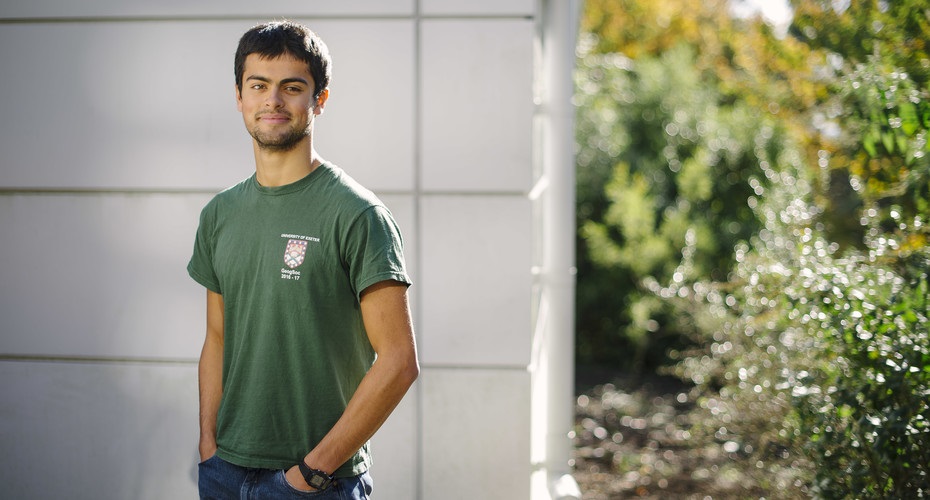| Degrees |
|
|---|---|
| Duration |
| Start date | September, January or April |
|---|---|
| Location | Streatham Campus |
| Study modes | Full time or part time. Distance-based research available. |
Overview
MPhil/PhD students work alongside researchers within the following research centres:
- Centre of Victorian Studies (CVS)
- 18 Century Narrative Consortium
- Exeter Centre for Literatures of Identity, Place and Sustainability (ECLIPSE)
- Centre for Literature and Archives
- Centre for Intermediate and Creative Technology
Contact
Web: Enquire online
Phone: 0300 555 6060 (UK)
+44 (0)1392 723044 (non-UK)
88% of our English research is internationally excellent
Based on research rated 4* + 3* in REF 2021, submitted to UoA27 English Language and Literature
Top 100 in World
QS World University Subject Rankings 2022
£1.2m external research funding awarded over the past 4 years
Research overview
Research centres and groups
The CVS covers all areas of Victorian Britain and the Empire: culture (high Victorian and fin de siecle literature, gender, and sexuality); science (biology and economics); technology (print, optical and sound media). CVS is an institutional member of the University of California Dickens Project and annually sends one staff member and one advanced research student to California, where they share a week’s academic activities with international Victorianists. CVS is also active in regular collaborations with the Nineteenth-Century Studies Centre at Birkbeck, the Victorian and late 19th and early 20th-century Divisions of the Modern Language Association of America, the North American Victorian Studies Association, the Australasian Victorian Studies Association, and the British Association for Victorian Studies. We have staff on the editorial boards of every significant Victorianist journal in Britain, North America and Australasia.
The group aims to provide a focus for research activities and publications centred on the cultural phenomenon of eighteenth-century narrative. The period that saw the dawn of the novel also witnessed the exponential development of a market for print culture and huge social change.
The centre holds many resources and manuscripts in the Special Collections archive, and actively encourages students to engage with this material.
English staff are also involved in the College's interdisciplinary centre which promotes advanced transdisciplinary research in performance and the arts through collaborations between artists, academics and scientists from a range of disciplines.
The diverse work of this large group includes specialist research on African-American writers; the American South; autobiography and life-writing; American and British modernism; postcolonial literature; Irish poetry; Conrad; Joyce; Lawrence; war poetry; Plath and Hughes; writing the city; South West writing; US cinema; early cinema; digital cinema and animation; film genres; film style, film sound and film history; US TV series and serials.
We have Creative Writing colleagues working in Poetry, Screenwriting, Fiction in all forms, Life Writing, Childrens'/Young Adult Writing, and Creative Non-Fiction.
Our 19th-century research includes specialist work on the fin-de-siècle; social and feminist theory; the New Woman; Victorian psychology; Queen Victoria; Darwinism and eugenics; Victorian poetry; Charles Dickens; and William Morris. Members of the research group have a strong record of attracting large grants for internationally distinguished projects and events. We take part in the University of California Dickens project, sending staff and postgraduates to its annual international events.
The CVS runs its own Visiting Speaker series that has included long-term collaborations with distinguished international visitors and it hosts regular international conferences, normally co-sponsored with the British Academy, other universities, professional organisations, or other Exeter research groups.
Members of the 18th-Century research group specialise in: women poets of the Romantic era; the eighteenth-century novel; epic poetry; transatlantic relations; the development of the literary canon; feminist literary history and theory; oriental tales; Jane Austen; Aphra Behn; Frances Burney; James Fenimore Cooper; Oliver Goldsmith; Thomas Grey; Anna Seward; and Mary Wollstonecraft.
The work of this group includes specialist research on the Middle English religious tradition; hermits and anchorites; literature and nationalism; Renaissance drama; satire; witchcraft and magic; politics and patronage; literature of the English Revolution; literature of foreign and domestic travel; science and literature; archaeology and literature; Renaissance drama in performance on film; Shakespeare; Spenser; Marvell; and Milton. We organise the medieval Exeter Symposium and regularly host conferences and workshops.
How to apply
Entry requirements
You should possess a honed talent for creative writing evident in your creative sample and writing experience, as well as a clear proposal demonstrating your ambition to create a piece of work to a publishable standard. In reviewing your application we will consider the strength and potential of your writing sample and proposed creative work, as well as the ability of our staff and resources to support you through completion of your work. Applicants will generally have achieved a first or upper second class honours degree (or equivalent), and an MA with merit (or comparable achievement). Evidence of publication, though not a necessity, is highly desirable.
Mphil/PhD
All students are initially registered for the MPhil, with the expectation of being upgraded later in their studies, if appropriate, to the PhD programme.
Requirements for international students
If you are an international student, please visit our international equivalency pages to enable you to see if your existing academic qualifications meet our entry requirements.
English language requirements
International students need to show they have the required level of English language to study this course. The required test scores for this course fall under Profile E: view the required test scores and equivalencies from your country.
PhD and Research Programme application process
The information below applies to self-funded PhD, MPhil and Masters by Research applicants, but if you are applying for a funded PhD studentship, please follow the specific instructions related to that application.
- Pinpoint your PhD research area
- Investigate whether this area is available at Exeter
- Ensure that you meet our English language entry requirements (international students only)
- Construct and refine your PhD research proposal
- Approach your potential supervisor(s)
- Apply online
PhD studentships pages can be accessed in our Funding lists on Finance tabs under each research topic page, and are also available from the Postgraduate Research search results pages on this site, on the PhD projects tab.
Full details of the application process can be found on our Apply now webpage.
Fees and funding
Tuition fees per year 2024/25
- Home: £4,786 full-time; £pro-rata part-time
- International: £22,600 full-time
For those studying for more than one year, our fees are expected to increase modestly in line with Consumer Price Inflation measured in December each year. More information can be found on our Student Finance webpages.
Tuition fees per year 2023/24
- Home: £4,712 full-time; £pro-rata part-time
- International: £20,500 full-time
For those studying for more than one year, our fees are expected to increase modestly in line with Consumer Price Inflation measured in December each year. More information can be found on our Student Finance webpages.
Our Postgraduate Funding webpage provides links to further information. If you are considering a PhD in the future, in addition to University of Exeter funding, we have been successful at securing postgraduate funding for PhD research through our Funded centres.
Current available funding
Supervision
You can expect:
- High-quality research supervision to develop and nurture your potential
- A tailored supervision approach to help best suit your requirements
- Access to a mentor who will take on a pastoral role and mediate on any problems that arise during the period of study
- Accessible supervisors who are enthusiastic about working directly with postgraduate research students
- Regular timetabled meetings with your supervisor
- 'Open door' policy to all postgraduate students - instant access to world-leading researchers who will share their expertise and ideas with you
- Regular meetings with your supervisory team, other members of your research group, and mentors
You will only be able to pursue a research degree with us if we can offer appropriate supervision. Your supervisors will provide the necessary support and guidance and so need to have expertise in your chosen research field. You may join a research team or work with specific members of staff.
We strongly recommend that you informally approach your potential supervisor(s) with your research proposal before submitting a formal application to study. This will enable you to find out if they feel they would be able to supervise you and whether they believe your research proposal needs further refinement.
Visit our how to apply page for detailed information on the application process.
Facilities
We have a number of specialist research resources and projects available to postgraduates: The Bill Douglas Cinema Museum is the largest film-related archive in the UK outside the British Film Institute; the Chris Brooks Collection is a major resource for scholars of Romanticism and 19th-century fiction and culture; and the Global Circulation Project on cultures in contact is based in Exeter. Our unique collections of writings and correspondence by authors connected with the South West such as Daphne du Maurier, RD Blackmore, Agatha Christie and Ted Hughes supplement research resources held in the University library.
The University library holds a number of resources important for our research, including the Hypatia Collection of women’s literature and history as well as online resources.
The Queen’s Building (Streatham Campus) and the Peter Lanyon Building (Penryn Campus) offer dedicated postgraduate common rooms with computer facilities and a number of study carrels available for research students.
Students at both campuses have access to a wealth of online information including: over 400 online journal titles; Early English Books Online (which contains facsimile texts of virtually all books printed in England, 1475-1700); the extensive Gale Eighteenth Century Collections Online (ECCO) research archive; search tools such as FirstSearch; the digital archive JSTOR; and other similar databases providing access to full text articles.
Studying English at our Penryn Campus gives you all the advantages of working within a small, research-driven department whilst still studying at a Russell Group University. You will have access to a dedicated postgraduate study space which features individual workstations for students. We also offer our postgraduate students the opportunity to gain valuable teaching experience through our Graduate Teaching Assistant programme.
Our staff have an 'open door' policy which encourages informal enquiries and puts you in closer contact with the academics who teach you than in any other department. We work closely with staff from other disciplines so you will also have access to academics from a range of different disciplines including History, Politics and Geography.
Student stories
PhD student Cecilia talks about mermaids as androgynous figures in Victorian art and literature.
PhD student Christos talks about his research focusing on two authors from the Orthodox tradition.
PhD student Polly talks about Contested Commodification of the Body in Eighteenth-Century Britain.
PhD student Freddie talks about exploring the representation of time in two poems written by Ovid.
Careers
We are committed to ensuring you receive high quality research supervision to maximise your potential and prepare you for a rewarding career.
Postgraduates also have access to the wide range of support offered by our Career Zone. In addition, postgraduate research students can access our Postgraduate Researchers' Programme, which covers a range of topics to help you to succeed during your research degree and to act as a springboard for your research career.
Graduate destinations
Below are some examples of initial jobs undertaken by English postgraduates who studied with us in recent years.
Please note that due to data protection, the job titles and organisations are listed independently and do not necessarily correspond.
| Job Title | Organisation |
|---|---|
| Teacher Associate Lecturer Policy Advisor Head of Academic Engagement Author Lecturer in Creative Writing Senior Business Analyst Copy Editor Research Officer Freelance writer and teacher Curator and Lecturer Lecturer in English Post Doctorial Research Fellow Research Grant Writer Course Leadder Editing and Post Production |
Royal Literary Fund |











